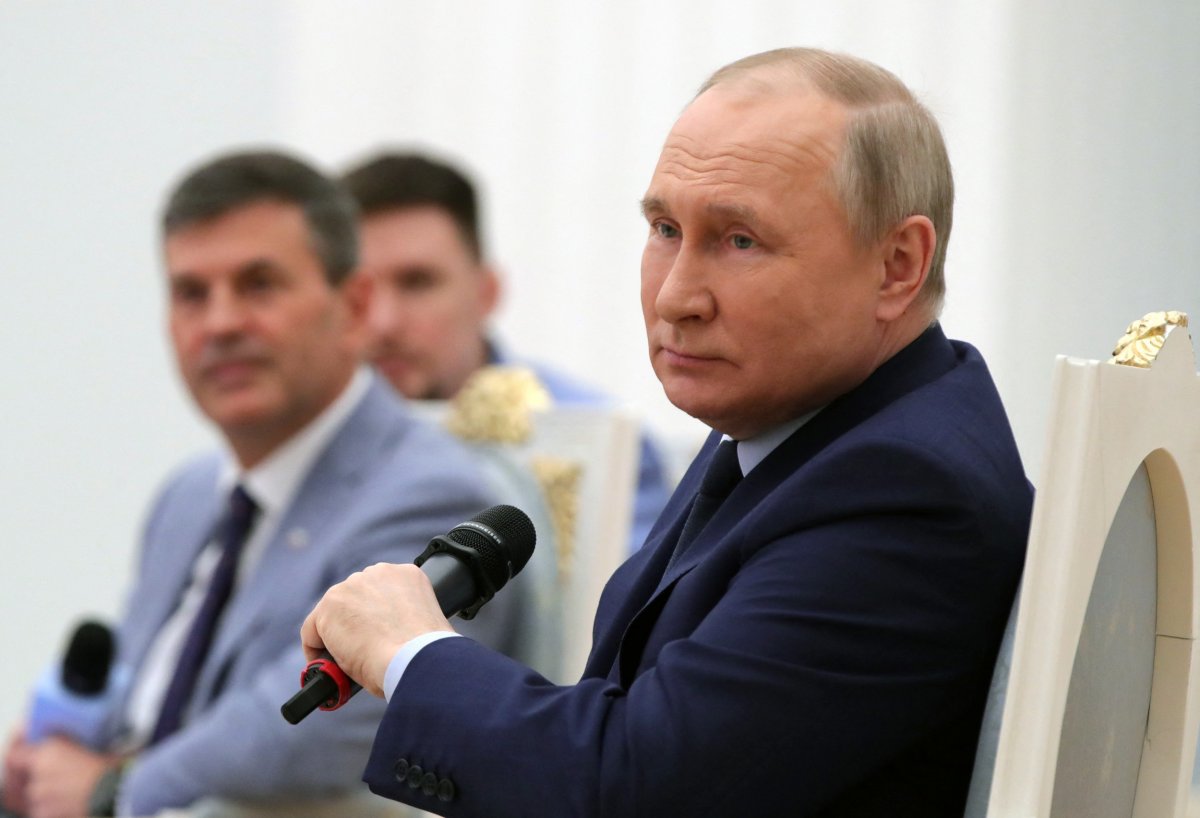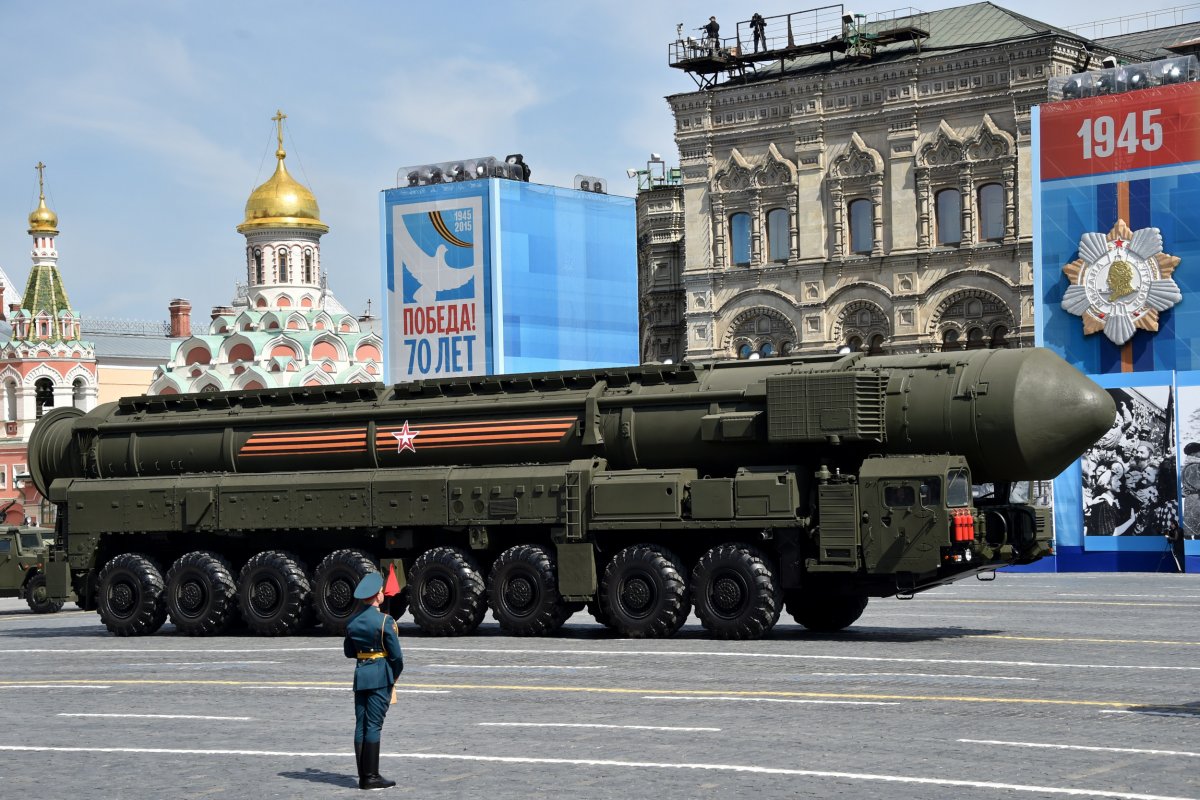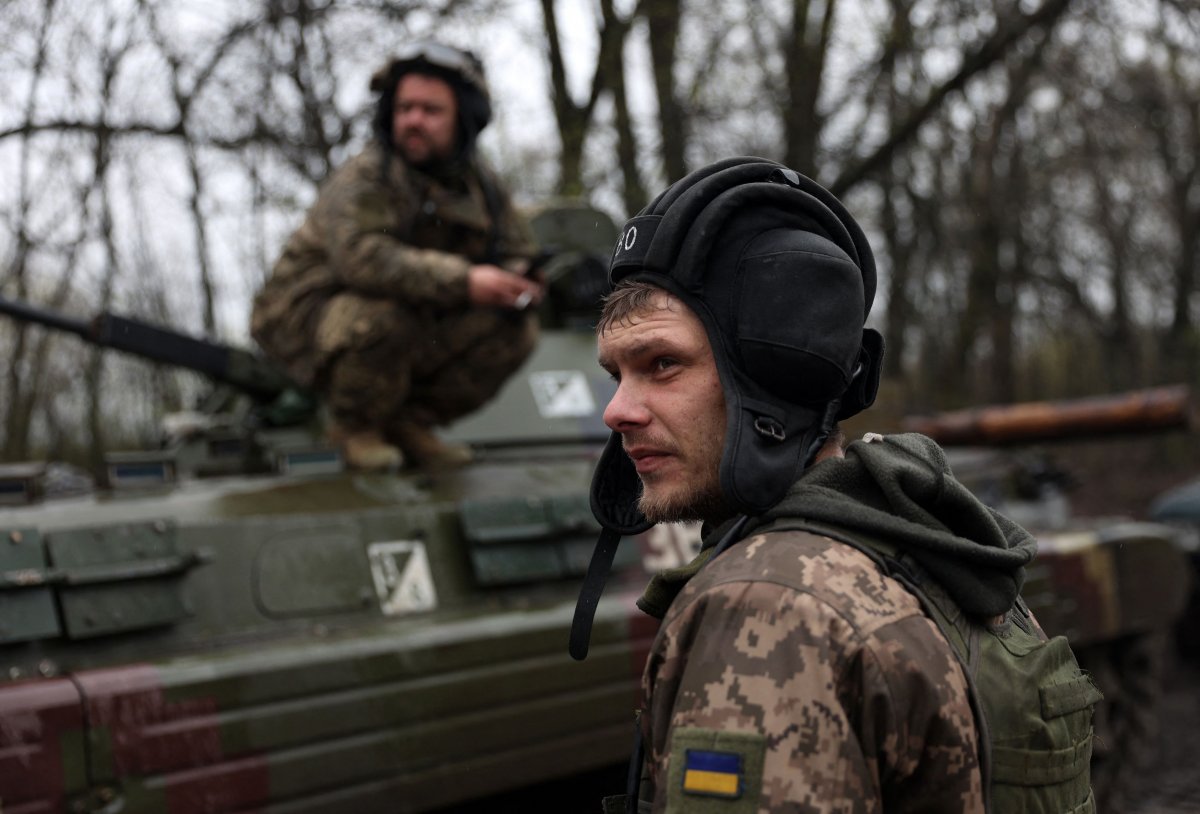President Vladimir Putin has not hesitated to publicly play his nuclear card since Russia's invasion of Ukraine began on February 24. This week's "Satan 2" intercontinental ballistic missile launch was, he said, intended to make Moscow's foreign adversaries "think twice."
None of Moscow's recent nuclear posturing—whether Putin's order of his nuclear forces to high alert, the threat to deploy warheads to the Kaliningrad Baltic enclave, or this week's ICBM launch—have been supported by any public evidence that Russia is changing its nuclear posture.
But Russia's nuclear arsenal is still large enough to destroy its enemies several times over. Regardless of Moscow's failures in Ukraine, any threat to resort to its 6,000 nuclear warheads cannot be dismissed out of hand. As German Chancellor Olaf Scholz told Der Spiegel: "There must be no nuclear war."
The nuclear saber-rattling does not appear to be unsettling all NATO nations. Pentagon spokesperson John Kirby this week described the ICBM test as "routine," adding: "It was not deemed to be a threat to the United States or its allies."

NATO and EU Baltic states have a long history of conflict with and abuse by Russia. They sit along the Russian border—both Russia proper and its Kaliningrad enclave—and have traditionally been more concerned about the eastern threat than their western European counterparts.
An Estonian diplomatic official, who did not wish to be named, told Newsweek: "There is no fear or panic here. Putin hasn't actually threatened with nuclear weapons before. But everyone has always known that they have those bombs. So far, society has taken it quite calmly. We have not seen a credible nuclear threat to be really worried about."
Russian military conduct around Ukrainian nuclear facilities is more of a worry than Moscow's atomic arsenal, the Estonian diplomat added. "People were more worried about the Chernobyl nuclear plant when the Russians occupied it," they explained.
"We did not have any certainty that they knew what they were doing there. Considering that they were digging trenches there, it seems that those guys were not particularly smart."
The Baltics were also calm when Russia threatened to deploy nuclear weapons to Kaliningrad if Finland and Sweden join NATO. Several top Baltic officials dismissed the threat, saying it is widely-known that Russia already has such warheads in the territory.
A Latvian diplomatic official, who also wished to remain anonymous, told Newsweek there was "not too much of a reaction in Latvia" to Russia's nuclear posturing.
"I think there is a bit of a paradox," the official said. "On the one hand, our historic trauma makes us more cautious, but on the other, we are also more immune to Russians being Russians."
Asked whether it was important to take Russian threats seriously, the diplomat responded: "Absolutely. As we say in Latvia, even a stick or a broom can fire once a year."
Nuclear poker
Several Ukrainians who spoke with Newsweek think Putin is bluffing. His nuclear threats, they say, are intended to distract from Russia's military failures and give NATO nations an excuse to limit their support for Kyiv.
"I don't believe that he will do it," said Oleksandr Merezhko, a member of Ukraine's parliament and chair of its foreign affairs committee. "It's part of his bluffing and blackmailing."
"I also suppose that this argument about the possible use of the nuclear weapons by Russia gives some politicians in Europe an argument not to provide heavy weaponry for Ukraine," Merezhko added.
"It's like a poker game. He raises stakes but in reality he is a coward. When he encounters resistance he backs down...He should be ignored."
Andriy Ryzhenko, a retired naval captain and former deputy chief of staff in Ukraine's navy, said the ICBM test was a distraction. "At the front lines they are losing tempo, they cannot advance in the east as much as they want, they have problems with the restoration of their capabilities lost in the first months of the war," he told Newsweek.
"I would say probably he is just bluffing," Ryzhenko said. "He understands that any use of nuclear weapons against any country will immediately trigger a response...If Russia does that against Ukraine or any other country, I would say they will not win."
Russia's 2020 nuclear policy document said it may use warheads in four scenarios—when responding to outside use of nuclear and other weapons of mass destruction against Russia and/or its allies; in the event of an attack using conventional weapons that threatens the existence of the state; when in receipt of "reliable data" showing ballistic missile launches against Russian or Russian-allied territory; or an attack on key sites that would undermine Russia's nuclear response.
The document also lists specific weapons that necessitate the country's nuclear deterrent. These include nuclear and other weapons of mass destruction, missile defenses, cruise missiles, hypersonic weapons, directed energy weapons, combat drones, and other nuclear-capable systems near Russia.
The Kremlin could justify a nuclear strike in Ukraine by these criteria, said Alexander Khara, formerly an adviser to the minister of defense and a National Security and Defense Council official. "Ukraine possesses unmanned aerial strike vehicles, thus formally might be considered a legitimate target," he told Newsweek.
A Ukrainian advance towards Crimea might also be considered a threat against key sites that could undermine Russia's nuclear response capabilities, Khara suggested. Likewise, Ukrainian battlefield success and cross-border raids could be interpreted as aggression using conventional weapons that threatens the existence of the Russian state.

Former President and Prime Minister Dmitry Medvedev confirmed in March that Russia's nuclear doctrine allows strikes even if an enemy has not attacked first.
Medvedev said there is a "determination to defend the independence, sovereignty of our country, not to give anyone a reason to doubt even the slightest that we are ready to give a worthy response to any infringement on our country, on its independence."
Ultimately, few know what Putin might do. Before the invasion, most—with the exception of U.S. and British intelligence agencies—did not foresee a full-scale Russian attack on Ukraine seeking to capture Kyiv and decapitate President Volodymyr Zelensky's government.
Iuliia Mendel, who previously served as Zelensky's press secretary, told Newsweek that Ukrainians are well aware of how brutal their enemies can be. "There is no trust of Russia, and there is a clear understanding that Russia can do whatever comes to Putin's mind if it is not stopped."
"This is why Ukraine asks the world to do everything possible to stop Russia at this stage," Mendel added. If the world did enough there would not be Russian troops and missile explosions in Ukraine any more."
Asked whether Putin would escalate to the nuclear level, Mendel replied: "I think even Putin doesn't know this. Many of his decisions don't look strategic, but more responsive, when Moscow orients to events. U.S. intelligence has said they think the use of nuclear weapons is possible."
A nuclear misfire
The risk of nuclear escalation remains low, whatever Putin might want Western politicians and publics to think.
"At times in this crisis, they've been doing some nuclear signaling, but there's little sign in the public domain that Russia has done much in the way of operational alerting of its force," Malcolm Chalmers, the deputy director‑general of the Royal United Services Institute think tank in London, told Newsweek.
"The immediate threat of the use of nuclear weapons is very low indeed," Chalmers said. This week's ICBM test, he added, is "a reminder for the wider public that Russia remains one of the two most powerful nuclear powers on the planet, and has the ability to wipe out the U.S. and its allies if it chose to do so. But that's not new. Russia has had that capability for half a century."
Putin ordered his nuclear forces onto high alert when Russian troops invaded Crimea in 2014 and when they invaded Ukraine again in February. "In both cases, by far the most plausible interpretation of what he was doing was sending a message to deter direct NATO involvement in the conflict," Chalmers said.
Chalmers added that unless Russian territory appears in immediate danger—and "we're not there yet by any means," he said—deterrence of NATO will remain the main goal of Russia's nuclear arsenal.
Khara suggested that a nuclear strike would have limited strategic value. "It won't make Kyiv accept political limitations on our sovereignty and acceptance of the annexation of Crimea, Donetsk, Luhansk and whatever the Russian forces control at that time," he said.
A nuclear strike would leave Putin even more isolated than he is now. "It would be condemned by the majority of nations, perhaps even including China," Khara said. "I don't think Putin wants to see such connotations in historical textbooks."
Chalmers concurred. "My view remains that in the end, Russia will only use nuclear weapons if they felt they could gain something from doing so," he said. "I don't think it will be driven by moral considerations or normative considerations at all. But they would be asking: 'Could Russia be better off by using these weapons than not?'
"It's very hard to construct scenarios in which that would be the case, they'd have to be pretty desperate to do that."
Putin can't launch a nuclear attack on his own. Any disquiet in the Russian military and intelligence communities may evolve into active conflict if the stakes go nuclear.
"I think that his nuclear threats might cause a backlash from his own generals," Merezhko said. "They don't want to go to the grave with him. They remember the story of [Nazi dictator Adolf] Hitler."

Khara said: "I hope that even those involved in war crimes, top commanders and those in the chain of command for 'pushing the button'—are sane."
Such top officials will be willing to remain silent if the nuclear threats remain rhetorical, Chalmers said. "If Russia was actually preparing for a nuclear launch, and people at the top of the Russian state were seriously considering the actual use of nuclear weapons, then clearly that would trigger a massive debate within the top levels of the Kremlin."
Former President Richard Nixon is credited with the "madman theory"—the idea that the Soviet Union would be more pliable if Moscow believed Nixon would resort to nuclear armageddon. Putin has at times played a similar game.
The dictator has carefully cultivated the image of a ruthless master strategist, commanding an unstoppable military force and willing to take high-stakes risks to improve Russia's position. This public facade—regardless of how often it is punctured by tactical and strategic blunders—adds uncertainty to the nuclear poker game.
The world is no stranger to nuclear brinkmanship. Few in Washington, D.C. London, Paris, or Brussels will take any nuclear posturing lightly.
"I don't think any Western governments are not taking the Russian nuclear arsenal seriously," Chalmers said. "Russia is one of the top nuclear superpowers on the planet. It is one of only two countries in the world which has the capacity to destroy a very large part of the world's population if they chose to do so. And that shouldn't be taken lightly."
Perhaps not even Putin knows how far he is willing to go in his imperialistic crusade.
"The most difficult thing is how to rationalize Putin's motives, behavior, and psychological state," Khara said. "He's created and maintained an image of a cold-blooded predator who might take a big but calculated risk."
"But his 'war of choice' is a strategic mistake. The war crimes and the way he covers it up—including the award of the esteemed 'Guards' title to the most brutal regiment deployed in Bucha—hint at some abnormality. We might be dealing with a psychopathological case. Insanity could be rationalized only by a psychiatrist, not an international relations pundit."
Newsweek has contacted the Russian Foreign Ministry to request comment.
Uncommon Knowledge
Newsweek is committed to challenging conventional wisdom and finding connections in the search for common ground.
Newsweek is committed to challenging conventional wisdom and finding connections in the search for common ground.
About the writer
David Brennan is Newsweek's Diplomatic Correspondent covering world politics and conflicts from London with a focus on NATO, the European ... Read more
To read how Newsweek uses AI as a newsroom tool, Click here.






